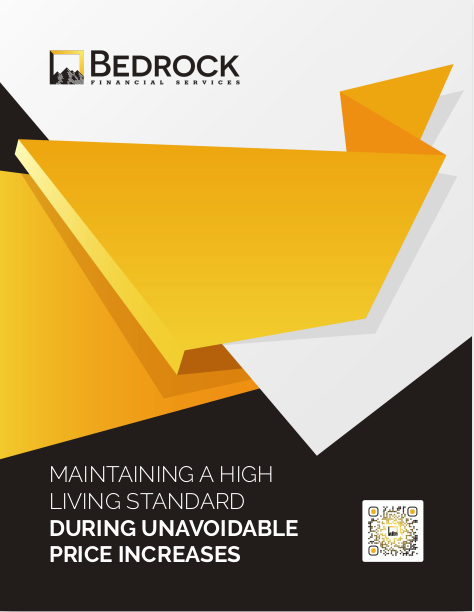Key Takeaways
-
You don’t need a finance degree to be a valuable resource for your clients—what they need most is clarity, structure, and consistency.
-
By focusing on listening, simplifying, and staying proactive, you build trust and long-term relationships that are more powerful than any financial certification.
The Value You Bring Isn’t Tied to Financial Credentials
Let’s start with a truth that often gets overlooked: you are not trying to become a certified financial planner. You’re an insurance agent with a unique role that complements financial planning. That means your value isn’t measured by how well you know the tax code or investment theory—it’s in how well you connect the dots for your clients.
In 2025, financial anxiety is still one of the top stressors among working Americans. Most of your clients don’t want jargon or detailed asset allocation strategies. They want to feel like someone understands their goals and is helping them build a plan that actually fits their life.
And that’s where you shine.
You Know More Than You Think
Many insurance agents underestimate how much they already know. You deal with policy language, risk assessments, family protection strategies, and long-term care options daily. That is financial education. You already know how to:
-
Explain the difference between term and permanent coverage
-
Talk through the benefits of income protection
-
Guide people through tough conversations about death, disability, and retirement
Even if you’re not using Wall Street terms, you’re guiding people through financial decisions. And that’s a serious contribution.
Speak the Language Clients Actually Understand
Here’s the real trick: translating financial complexity into language that clients can relate to. Most people tune out the moment they hear words like “annuities,” “liquidity,” or “yield.” But say, “Let’s make sure your spouse doesn’t struggle financially if something happens to you,” and suddenly you’re speaking their language.
If you can:
-
Replace technical words with plain phrases
-
Use analogies your audience relates to
-
Ask more questions than you answer
…you’ll quickly become the most trusted voice in the room.
What Clients Really Want in 2025
There are three things your clients value more than your financial expertise:
-
Consistency: Are you showing up regularly, even when you’re not selling something?
-
Responsiveness: Do they hear from you quickly when they have questions or concerns?
-
Clarity: Do you make things simpler instead of more confusing?
They are not coming to you for market timing advice. They’re coming to you to help them avoid gaps, risks, and surprises. That’s the space where trust grows.
Focus on the Conversation, Not the Calculator
When clients meet with a financial expert, they often feel overwhelmed or underprepared. But when they meet with you, they should feel the opposite. They should feel like they can be honest about what they don’t know.
To create that feeling:
-
Don’t lead with numbers or projections.
-
Let clients talk more than you do.
-
Start every conversation by asking what they want their future to look like.
Yes, calculators and tools can come later. But if you start with them, you risk turning the session into a lecture instead of a collaboration.
Your Job Is to Organize, Not Overwhelm
One of the most valuable things you can do for a client in 2025 is help them get organized. Most people’s financial lives are scattered across employer plans, old insurance policies, and forgotten accounts. You don’t need to solve everything—you just need to help them take the first step.
Offer to:
-
Review what they already have
-
Identify overlapping or unnecessary coverage
-
Create a simple timeline of key financial milestones (age 59½, age 65, retirement target, etc.)
That kind of help builds loyalty that no product pitch can match.
Be a Proactive Resource Year-Round
The agents who win in 2025 are not the ones who sell the most policies. They’re the ones who stay in front of their clients between renewals. Don’t wait for open enrollment or birthdays to check in.
Build a rhythm like:
-
Quarterly check-ins by email or text
-
A short, plain-English newsletter on upcoming changes (like Medicare deadlines or tax thresholds)
-
Personal touches like handwritten notes on policy anniversaries
These small actions keep you top of mind—and make it more likely that clients will come to you with the next big life decision.
You Don’t Have to Know Everything
Let’s be clear: it’s okay not to know the answer to every question. In fact, saying “I’m not sure, but I’ll find out for you” builds more trust than pretending to know everything.
In 2025, information is everywhere. But curation? That’s rare. Your clients need someone who can:
-
Filter out noise
-
Validate what actually matters
-
Refer them to reliable professionals when something is out of scope
Build a trusted network of tax pros, attorneys, and financial advisors. When you do need help, you’ll know exactly who to call.
Train on Communication, Not Just Products
If you want to elevate your value, don’t just train on new products—train on better conversations. In 2025, the agents who grow fastest are those who master emotional intelligence.
Focus your development on skills like:
-
Active listening
-
Asking better questions
-
Framing decisions around goals, not products
This kind of training makes you stand out from the crowd. Clients remember how you made them feel long after they forget what policy they bought.
Show, Don’t Tell
Trust isn’t built by saying, “I care about my clients.” It’s built by showing up over and over, especially when nothing is being sold. In 2025, attention spans are short, and sales skepticism is high. That’s why your value needs to be felt before it’s spoken.
Try this:
-
Give away useful content without asking for anything in return
-
Hold educational sessions (virtual or local) with no pitch
-
Share client success patterns, not just testimonials
When clients see that you’re focused on helping before selling, they’ll naturally turn to you when the timing is right.
You Bring the Human Advantage
AI and robo-advisors have their place, but they can’t:
-
Sense when someone’s holding back because they’re embarrassed
-
Hear the stress in someone’s voice when they say, “I think I’ll be fine”
-
Adjust the tone of a conversation in real-time
In 2025, the human advantage matters more than ever. When you blend your technical knowledge with empathy, that’s when you become irreplaceable.
Real Trust Comes From Simplicity
Your clients aren’t looking for the most brilliant advisor. They’re looking for the clearest one. If you can take a mess of documents, emails, and policies and help someone feel in control of their future, you’ve already won.
You don’t need fancy credentials to do that. You need:
-
Patience
-
Consistency
-
A genuine interest in helping people solve problems
That’s how real trust gets built. That’s what keeps clients loyal.
Turn Simplicity Into Your Signature
If you’ve been holding back because you don’t feel like a “financial expert,” stop. Your strength is in translating confusion into clarity. That’s a rare and valuable skill in today’s market.
When you focus on structure, relationships, and being genuinely helpful, you will always have a seat at the table—no CFP required.
If you’re ready to take your business even further, sign up with Bedrock Financial Services. We help professionals like you stand out, stay organized, and focus on what matters most. Our tools, training, and support are designed to amplify the value you already bring to the table.







